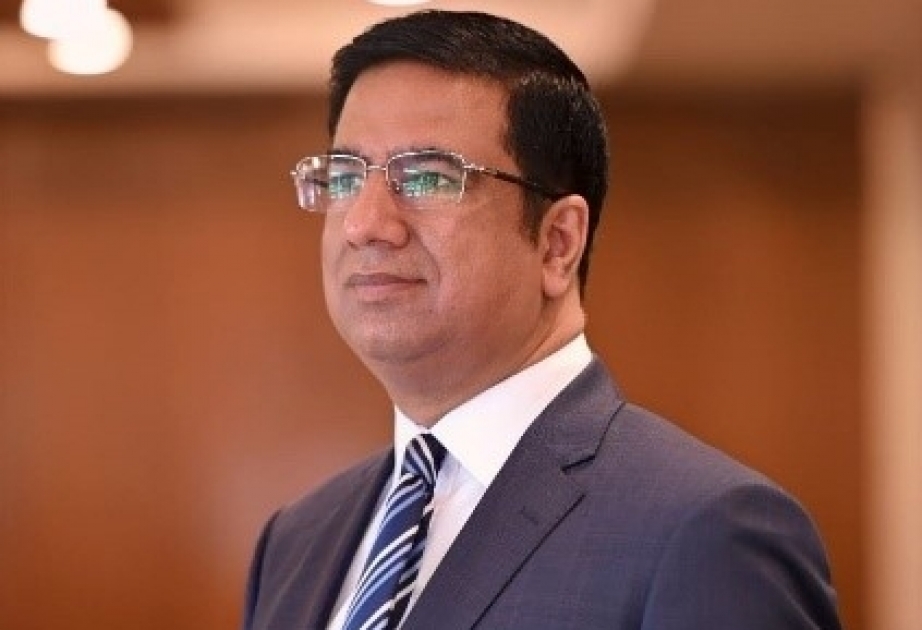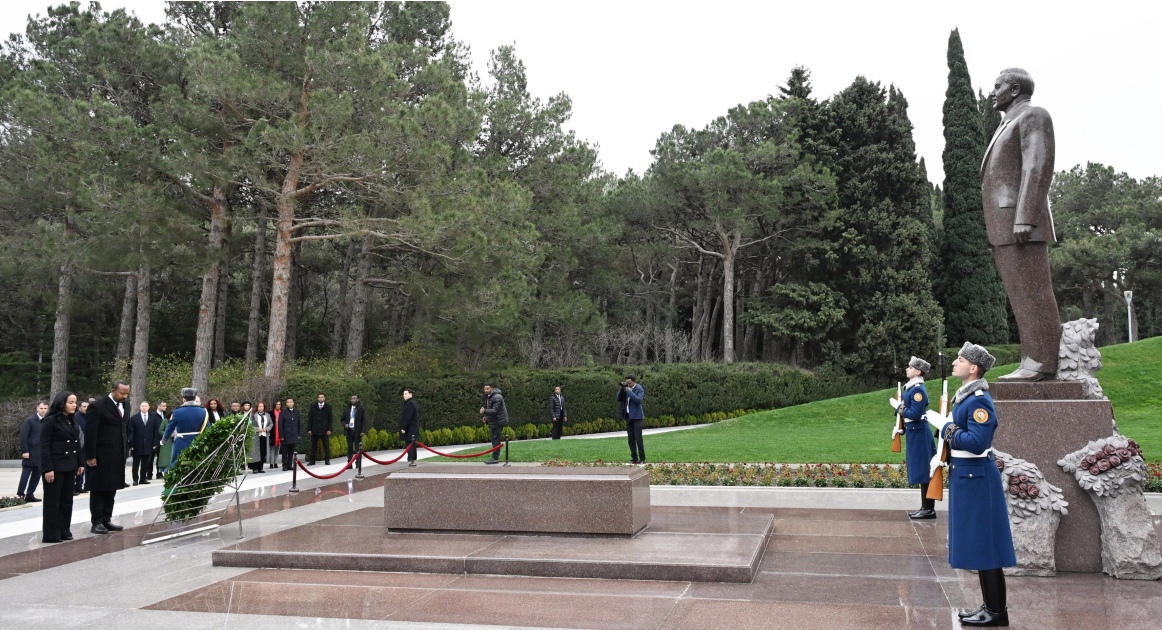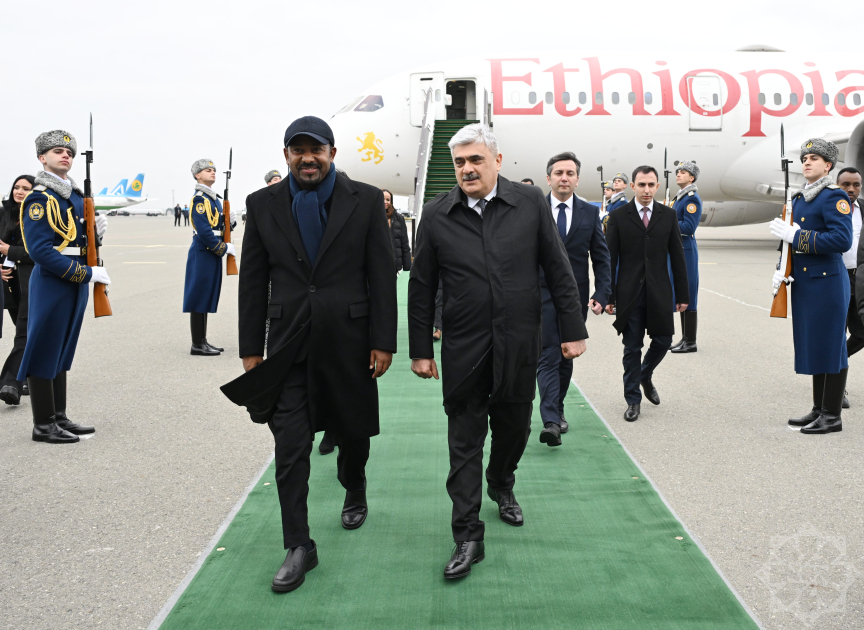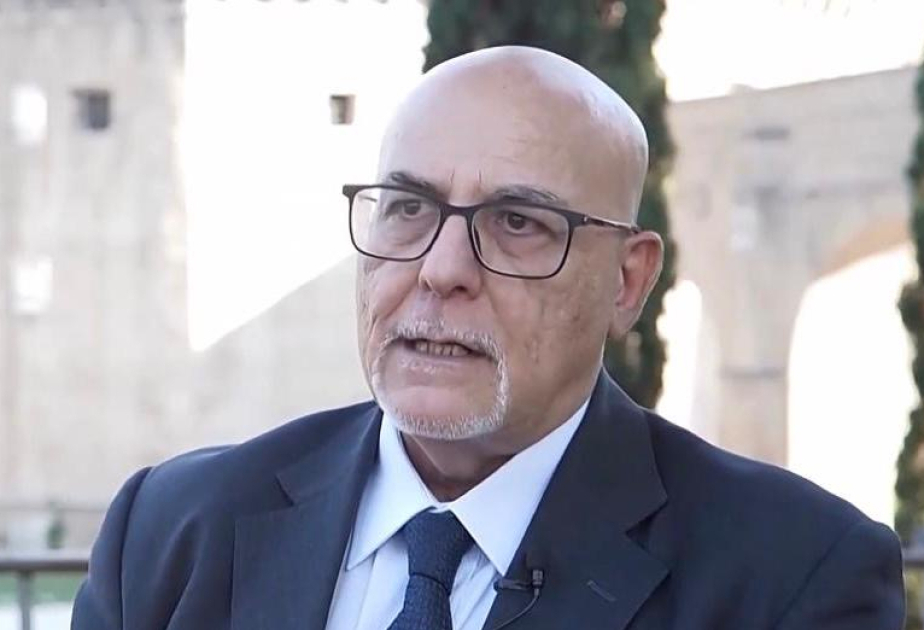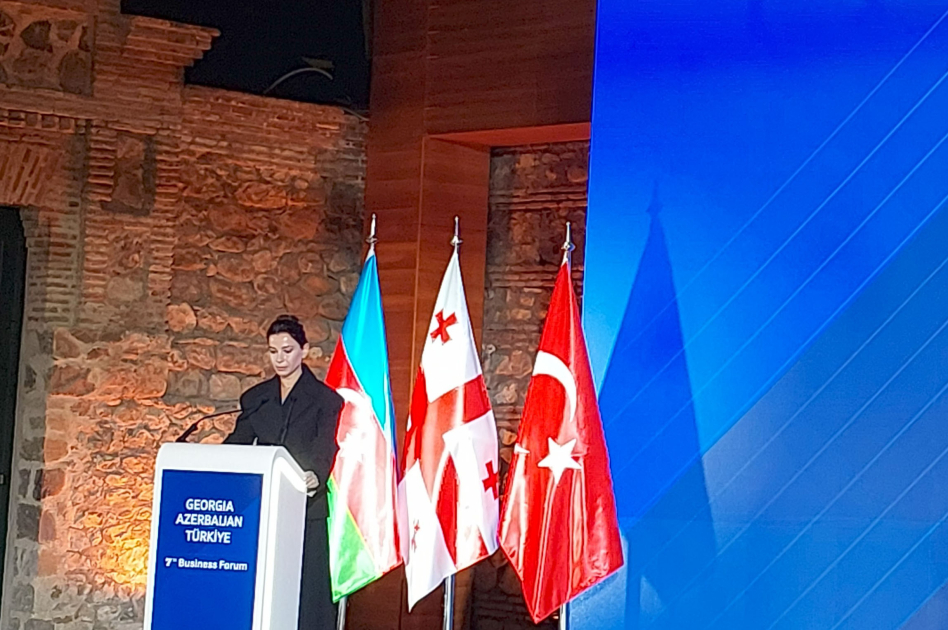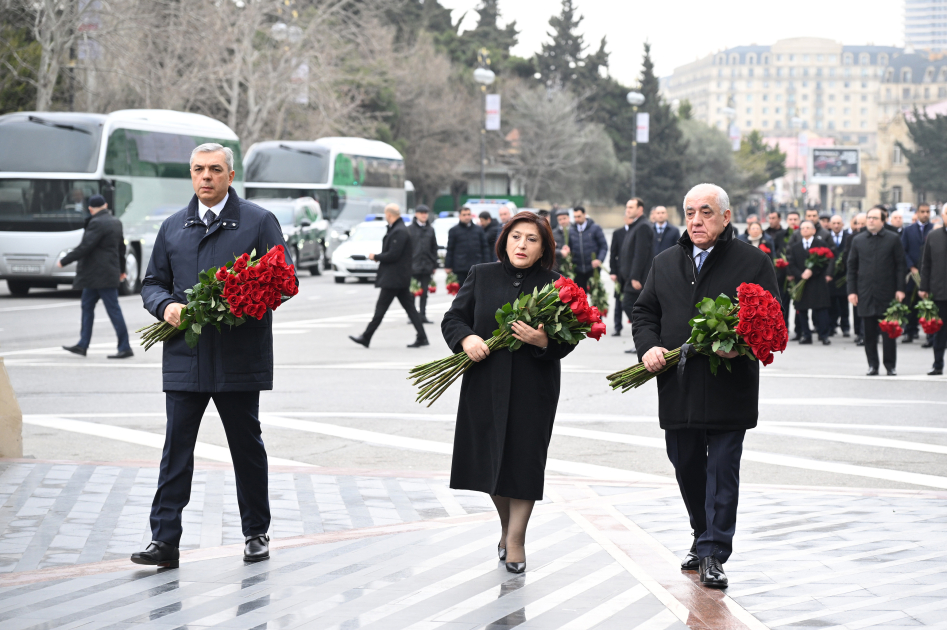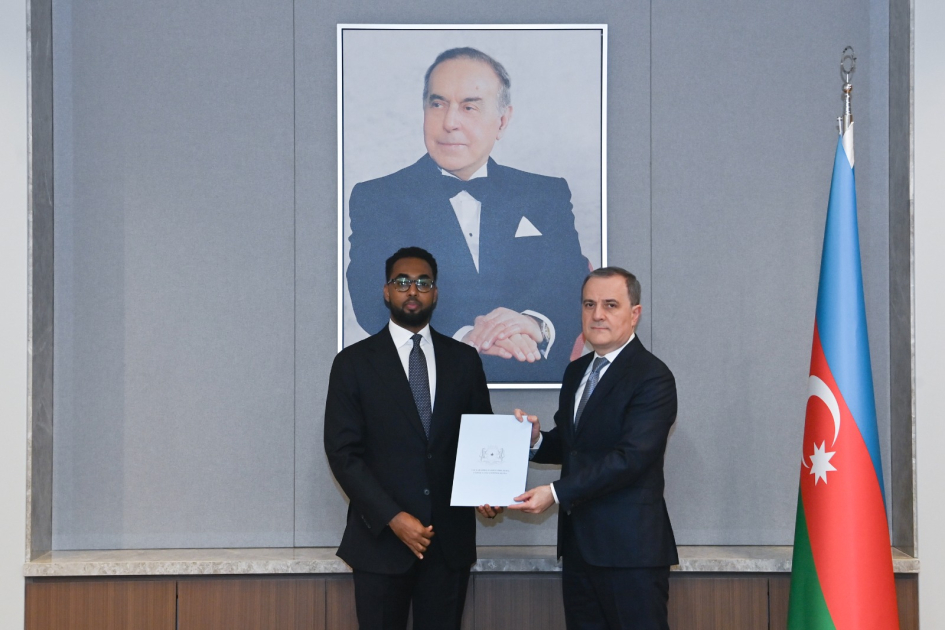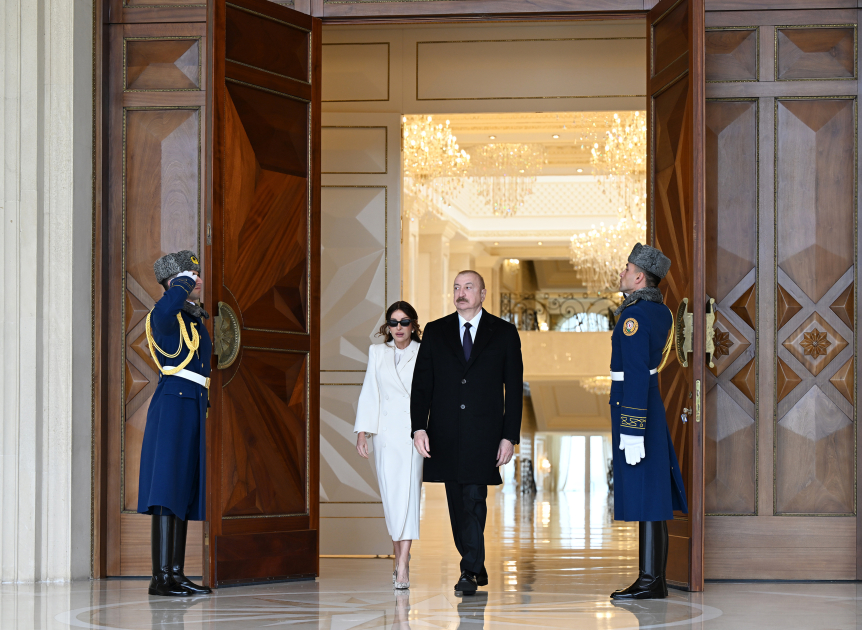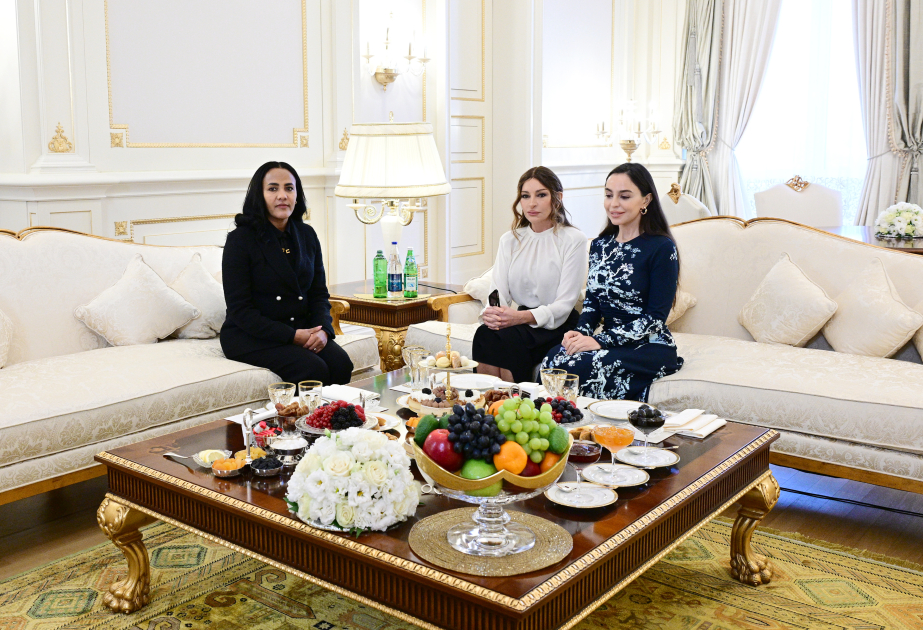Azerbaijan Declaration of 2024: "Green World Solidarity Year"
In a significant move demonstrating its commitment to environmental sustainability, Azerbaijan has declared 2024 the "Year of Solidarity for a Green World." The Presidential Administration of Azerbaijan has been tasked with formulating proposals for an action plan related to the declaration of 2024 as the "Green World Solidarity Year." This decision aims to enhance international solidarity in the global effort against climate change.
This initiative spearheads Azerbaijan's recognition of the urgent need to address climate change and the environmental challenges that confront us all. Azerbaijan aims to stimulate a national and international discourse on ecological issues, foster the implementation of green technologies, and promote sustainable development practices. President Ilham Aliyev underscored the importance of global solidarity in fostering environmental consciousness and sustainability initiatives. His proactive engagement on this platform further amplifies the commitment of Azerbaijan towards promoting environmental stewardship and catalyzing collective efforts for a greener and more sustainable world.
President Ilham Aliyev signed an order declaring 2024 the 'Green World Solidarity Year.' This order underscores Azerbaijan's role in combating climate change and outlines initiatives to enhance environmental conditions while setting ambitious targets for greenhouse gas emission reduction. It emphasizes Azerbaijan's active role as a reliable and responsible member of the international community, taking substantial steps to combat the consequences of climate change.
Azerbaijan's green energy ambitions
Azerbaijan prioritizes the creation of green energy sources, with a goal for renewable energy to constitute 30% of its electricity-generating capacity by 2030. This target reflects Azerbaijan's ambitious climate goals and its commitment to reducing its carbon footprint. Azerbaijan has set ambitious targets to reduce greenhouse gas emissions, aiming for a 35% reduction by 2030 and a 40% reduction by 2050.
Azerbaijan has been contributing to measures to deal with the consequences of climate change, including environmental enhancement, efforts to rehabilitate and expand green spaces, the efficient use of water resources, and sustainable energy sources. The government's multifaceted approach, encompassing the promotion of sustainable building materials, implementation of energy-efficient measures, and extensive public awareness campaigns, has been instrumental in fostering the adoption of green building practices. By fulfilling these initiatives, Azerbaijan seeks to reduce its environmental impact, preserve valuable resources, and foster the creation of a healthier and more sustainable built environment.
The government's commitment to green building practices is further evident in the incorporation of energy-efficient lighting systems and HVAC systems within government buildings. In parallel, private companies and building owners have enthusiastically embraced the initiative to align existing structures with energy-efficient standards. These collective efforts underscore Azerbaijan's dedication to advancing sustainable practices within the construction sector and promoting a greener, more environmentally conscious urban landscape.
The Azerbaijani government plans to transform the liberated Karabakh (Garabagh) and East Zangazur regions fully into a "Net-Zero Emission" Zone as a priority within the ongoing reconstruction and development projects, as well as reduce carbon dioxide emissions by 40 percent by 2050. The green energy potential of the liberated territories of Azerbaijan includes almost all types of renewable energy sources, including hydro, solar, wind, and geothermal. Liberated Karabakh and East Zangezur, as well as the Nakhchivan Autonomous Republic, have been declared green energy zones. The protection of the environment stands as a priority in the extensive restoration and redevelopment processes unfolding in the liberated territories. Innovative approaches such as "smart city" and "smart village" are implemented in these areas, contributing to ecosystem restoration.
Azerbaijan's Role in the International Climate Agenda
As a responsible member of the international community, Azerbaijan's hosting of the 29th Conference of the Parties to the UN Framework Convention on Climate Change (COP29) in 2024. The hosting of the 29th session of the Conference of the Parties to the United Nations Framework Convention on Climate Change (COP29) further signifies and reflects the international community's profound respect and trust in Azerbaijan, recognizing the nation's endeavors in environmental protection and addressing climate change on national, regional, and global scales.
By some estimates, approximately 70,000 to 80,000 foreign guests will visit Azerbaijan. The ultimate objective of the conference under the United Nations Framework Convention on Climate Change is to stabilize greenhouse gas concentrations in the atmosphere at a level that will prevent dangerous human interference with the climate system in a time frame that allows ecosystems to adapt naturally and enables sustainable development. This would be done through the use of sustainable agriculture, environmentally friendly transport, smart cities, smart villages, and reforestation.
Through various programs and partnerships, both domestically and internationally, Azerbaijan seeks to enhance its green policies and engage citizens, organizations, and other countries in a collective effort to protect the planet. Underscoring the nation's commitment to environmental stewardship, the Order aligns with one of Azerbaijan's key national priorities for socio-economic development until 2030: becoming a "Country of Clean Environment and Green Growth." Key priorities outlined are intricately linked to Resource Efficiency and Cleaner Production (RECP) activities, emphasizing the strategic focus on cultivating a steadily growing competitive economy, nurturing competitive human capital, fostering an environment conducive to modern innovations, and investing significantly in a clean environment to propel the nation towards sustainable industrial development and national "green growth.
Conclusion
In conclusion, Azerbaijan's hosting of COP29 stands as a commendable achievement and is poised to be a "great success." This decision, unanimously supported by nations worldwide, reflects Azerbaijan's robust global standing. The country has earned increasing respect on the international stage through its impactful actions, steadfast deeds, and forward-thinking policies. Azerbaijan's growing influence is a testament to its commitment to lasting peace, proactive involvement in cooperative endeavors, international solidarity, and dedication to collaborative initiatives.
Mr. Khalid Taimur Akram, Executive Director, Pakistan Research Center for a Community with Shared Future (PRCCSF), Islamabad


